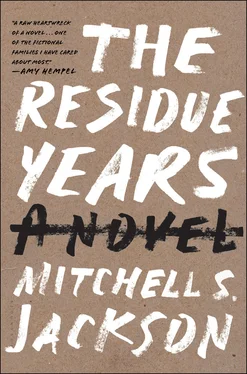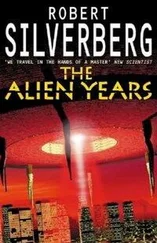A head or two twist around when I walk in. Haskins pauses long enough for me to find a seat. Mr. Thomas, he says, his voice deep and scratchy. (Imagine an old blues singer: a B.B. this or Muddy that.) Nice of you to join us. I was worried you’d miss your turn, he says. How long before you’re ready? The thick of Haskins’s specs, you’d believe him if he claimed he could see outer space. He twirls a stick of chalk. He settles in a desk in the front and crosses his legs.
It won’t take long, I say. I fleece my pockets for a tissue, pat my face, search my bag for my speech, and ramble up to the lectern. I clear my throat, look out at the room, a class as full as it’s been all quarter, at Haskins sitting in the front row, a critique sheet on his desk. Good morning, I say. My name is Shawn Thomas and my speech is called “The Bias Effect.”
* * *
Here’s the forty-four-billion-dollar question:
What’s the link between the NBA lottery and America’s War on Drugs?
The answer: Leonard Kevin Bias.
The über-ballyhooed Len Bias, that is.
[Pause. Eyes.]
This year marks the tenth anniversary of the night the Boston Celtics selected the former Maryland Terrapin with the number two pick in the NBA draft. The six-foot-eight small forward with the liquid jumper and bionic legs was everybody’s pick for the next coming, a talent to rival Michael Jordan, some said maybe better than Jordan, a player who could fuel the league for years to come. Well, Bias didn’t transform the B-ball universe alive, but his death from a cocaine overdose forty-eight hours after that draft sure has metamorphosed America.
[Pause. Eyes.]
Soon after Bias’s death, House Speaker Tip O’Neill (rest in peace), let’s call him Commissioner Tip O’Neill, inflamed by the death of a player who’d become a neutron star in what was known as the DMV, and whom Tip, not ironically the representative of Boston, believed had died of a crack overdose because he was black, convinced his Democrats they needed a swift and stern response.
If you think Commissioner Tip’s game plan was all about Bias and pursuit of the greatest public good, think again. It was an election year and the donkeys were dead set on socking it to the GOP, who’d won two years prior in no small part by convincing voters their rivals were “too soft on crime.”
All right, so even if the Dems’ motives weren’t wholly pure, at least they had the sense to seek counsel. There was no way an experienced group of lawmakers could fathom drafting a bill without research, facts, testimonies, expert opinions.
Wrong! Wrong! Wrong!
[Eyes.]
The response of Commissioner Tip and his collective of vote-seeking senators was about as soft as the bad-boy Detroit Pistons. That answer was called the Anti-Drug Abuse Act of 1986. The bill, which volleyed for a spate between the House and the Senate, was ratified that October; it passed sans a single secondary expert opinion, with all of zero hearings, without conversation the first with a single person from the Bureau of Prisons, minus insight from even one judge, sitting or retired or dead and brought back to life.
[Eyes.]
It was a tough, big, attention-grabbing bill, infamous for a draconian-like feature that had been outlawed since the 1970s: a mandatory minimum, more specifically the hundred-to-one ratio.
[Pause. Pause. Eyes.]
What that ratio means is this: it takes a hundred times the amount of soft cocaine to trigger the same penalty for crack cocaine.
Tip and his boys set the triggers for first-time offenders at five and fifty grams. Five grams of what old-school dealers called “ready rock” earns a five-year federal bid. Fifty grams earns a ten-year set. By contrast, you’d need five hundred and five thousand grams of soft cocaine for that much time behind bars.
[Pause. Eyes.]
Let’s put that in furthur perspective? The average role player wandering the streets with five grams, what amounts to a few rocks, in his pocket would receive the same sentence as a team starter toting a half kilo.
It means the sixth-mantype dealer arrested with fifty grams on his person, what amounts to the size of a jumbo meatball, is subject to the same sentence as an all-league dealer caught with five kilos!
Now that we all know the numbers, can we agree they don’t add up? That the math adds up in the worst way.
[Pause.]
Now here’s another billion-dollar question. Which ethnic group is most sentenced to the unsportsmanlike bids?
Answer: The lion’s share don’t look nothing like Commissioner Tip and his team of rah-rah politicians.
[Pause. Eyes.]
Before you accuse me of playing the race card, check out a few more stats
Nationwide, blacks make up eighty-two percent of the cocaine defendants, while whites and Hispanics make up two-thirds of cocaine users !
Nationwide, blacks receive eighty-eight-point-three percent of the mandatory crack sentences!
In Bias’s home state, the stats aren’t any better.
There, blacks make up sixty-eight percent of all people arrested for drugs.
There, blacks now land drug-related prison terms at eighteen times the rate of whites!
I could go on. Believe me, I could.
[Pause. Pause. Eyes.]
It’s safe to say — no, it’s true and right to say — Commissioner Tip and his Dream Team of legislators not only dropped the ball on drug laws, they exacerbated it to the crisis of a forty-four-billion-dollar (take that salary cap!) annual blunder. Commissioner Tip has passed on, so the new question, the question for all the bank, is this: Which politician will have the guts to amend what has become the biggest mistake of twentieth-century American law?
* * *
Even a super-senior such as myself don’t know what to make of this silence.
Haskins stands and tucks the hem of his African-colored ethnic print shirt, the light turning his natural into a gibbous black globe. Polished wing tips, pregnant wallet stuffed in the front pocket of slacks cinched at the waist into specs of a corset. This is what the activist-turned-professor look looks like live in vivid color. He saunters up, and I make my way to the back to a seat. He makes a comment that I don’t hear from eyeing the Filipina chick across the room.
Would anyone like to offer feedback? Haskins says. Or ask a question. I sit up, roll my neck, press my toes to stretch my calves. The pugnacious earthy chick with the tangled hair, who stay shooting me a cryptic eye, shoots up a hand. You make it seem like some big conspiracy, she says. She pulls her knees to her chest, leaves her demolished boots hanging off the lip of her seat. As if America has some goal to put blacks in prison. Like, that’s just so ridic, she says, and waves her hands past her eyes. Like beyond ridic.
I kind of agree, a dude from across the circle says. He don’t raise his hand cause, shit (his T-shirt is two sizes too small and jeans are shrink to snug!), if he did he might bust a seam. Hey, I’m not prejudiced or anything, he says, but it sounds like excuse-making to me. Do you really think Congress has it out for blacks? C’mon, bud, he says. People commit crimes and criminals go to jail. It’s simple. Everything’s not about race.
If this was another year, my freshman or sophomore or junior year, those quarters my brain’s alchemy was tweaked by a legion of black studies courses (you’d be surprised how riled the right reading list can make you), if this was then, those days I spent stalking campus with a militant’s scowl, I’d say something to set dude’s snug-ass jeans aflame. But this ain’t then; it’s now, my last year, and the real is, no matter what I say, white folks won’t ever hate themselves like us.
You’re right, not everything’s about race, I say. But what if this is?
Читать дальше












